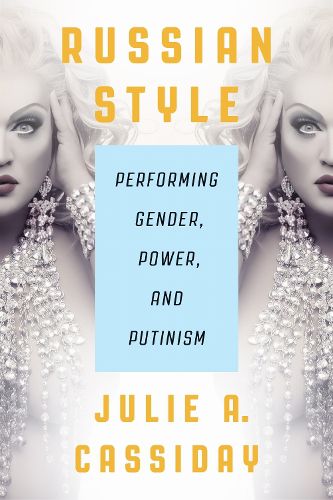Readings Newsletter
Become a Readings Member to make your shopping experience even easier.
Sign in or sign up for free!
You’re not far away from qualifying for FREE standard shipping within Australia
You’ve qualified for FREE standard shipping within Australia
The cart is loading…






As the West liberalized its stance on sexuality and gender between 2000 and 2020, Vladimir Putin's Russia moved in the opposite direction, remolding the performance of Russian citizenship according to a neoconservative agenda characterized by increasingly exaggerated gender roles. By connecting gendered and sexualized citizenship to developments in Russian popular culture, Julie A. Cassiday argues that heteronormativity and homophobia became a kind of politicized style under Putin's leadership. However, the multiple modes of gender performativity simultaneously helped citizens resist and protest the state's mandate of heteronormativity. Examining everything from memes to the Eurovision Song Contest and self-help literature, Cassiday untangles the discourse of gender to argue that drag, or travesti, became the performative trope par excellence in Putin's Russia. Provocatively, Cassiday further argues that the exaggerated expressions of gender demanded by Putin's regime are best understood as a form of cisgender drag. This smart and lively study provides critical, nuanced analysis of the relationship between popular culture and politics in Russia during Putin's first two decades in power.
$9.00 standard shipping within Australia
FREE standard shipping within Australia for orders over $100.00
Express & International shipping calculated at checkout
As the West liberalized its stance on sexuality and gender between 2000 and 2020, Vladimir Putin's Russia moved in the opposite direction, remolding the performance of Russian citizenship according to a neoconservative agenda characterized by increasingly exaggerated gender roles. By connecting gendered and sexualized citizenship to developments in Russian popular culture, Julie A. Cassiday argues that heteronormativity and homophobia became a kind of politicized style under Putin's leadership. However, the multiple modes of gender performativity simultaneously helped citizens resist and protest the state's mandate of heteronormativity. Examining everything from memes to the Eurovision Song Contest and self-help literature, Cassiday untangles the discourse of gender to argue that drag, or travesti, became the performative trope par excellence in Putin's Russia. Provocatively, Cassiday further argues that the exaggerated expressions of gender demanded by Putin's regime are best understood as a form of cisgender drag. This smart and lively study provides critical, nuanced analysis of the relationship between popular culture and politics in Russia during Putin's first two decades in power.